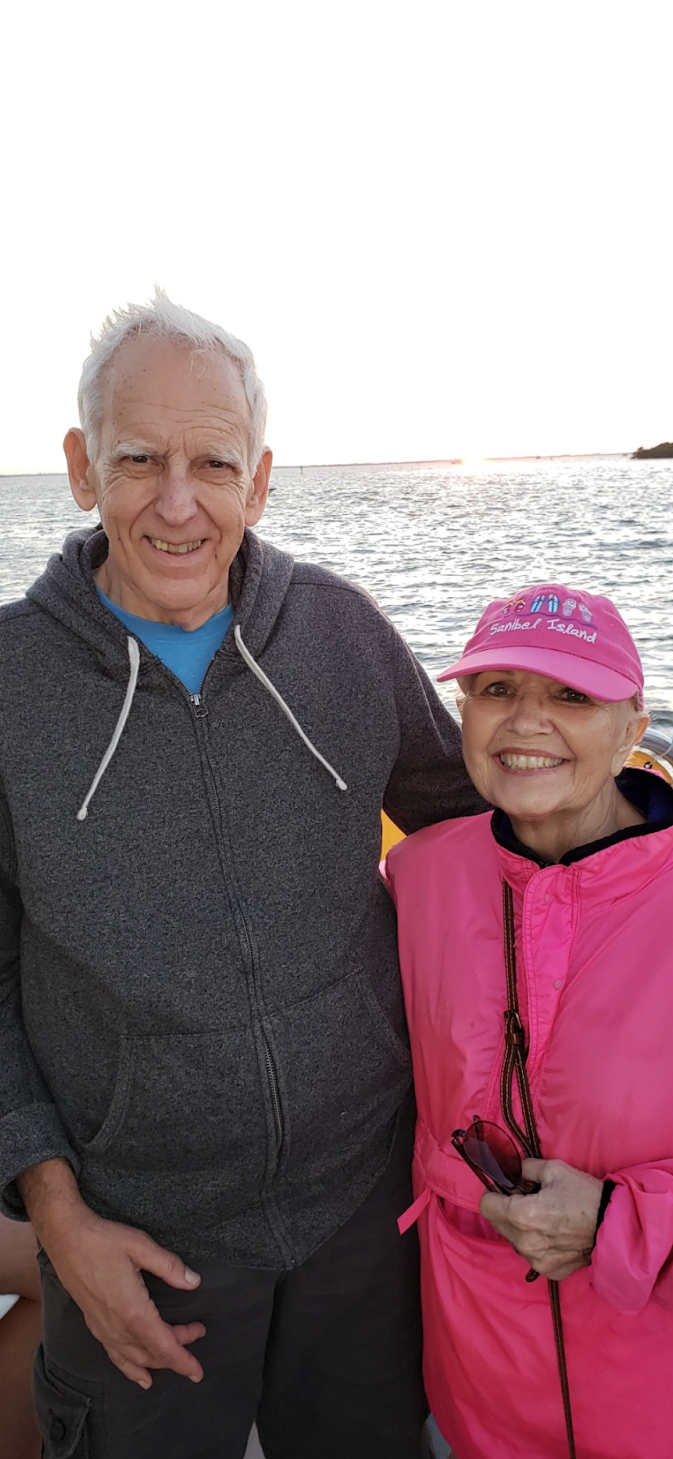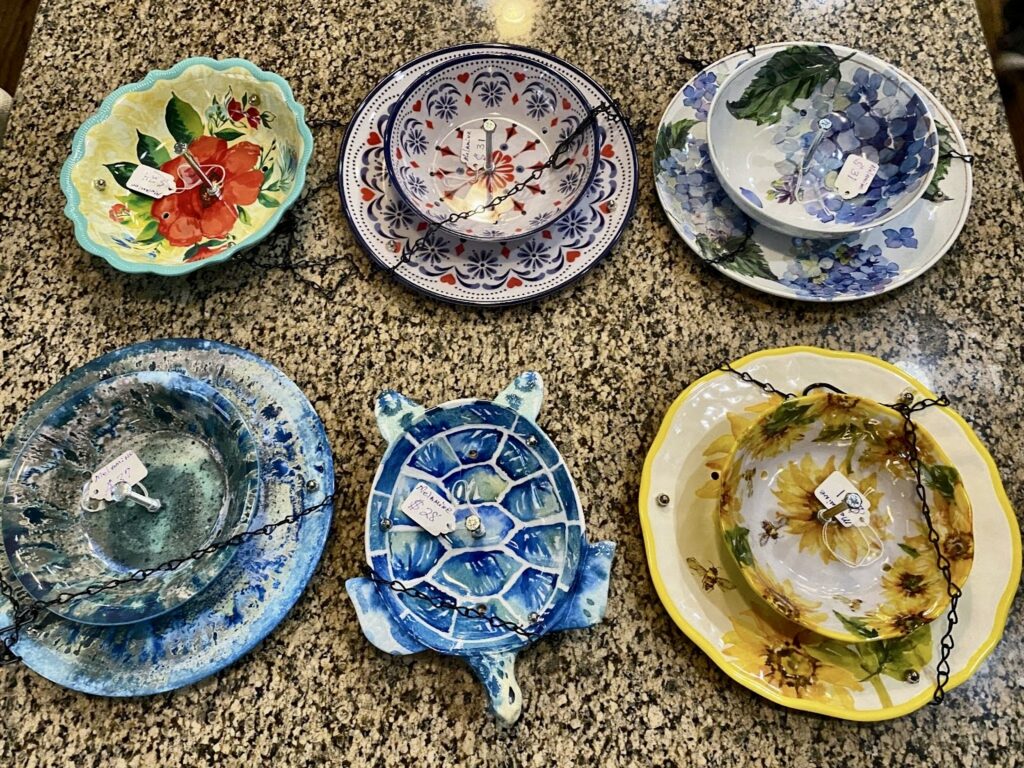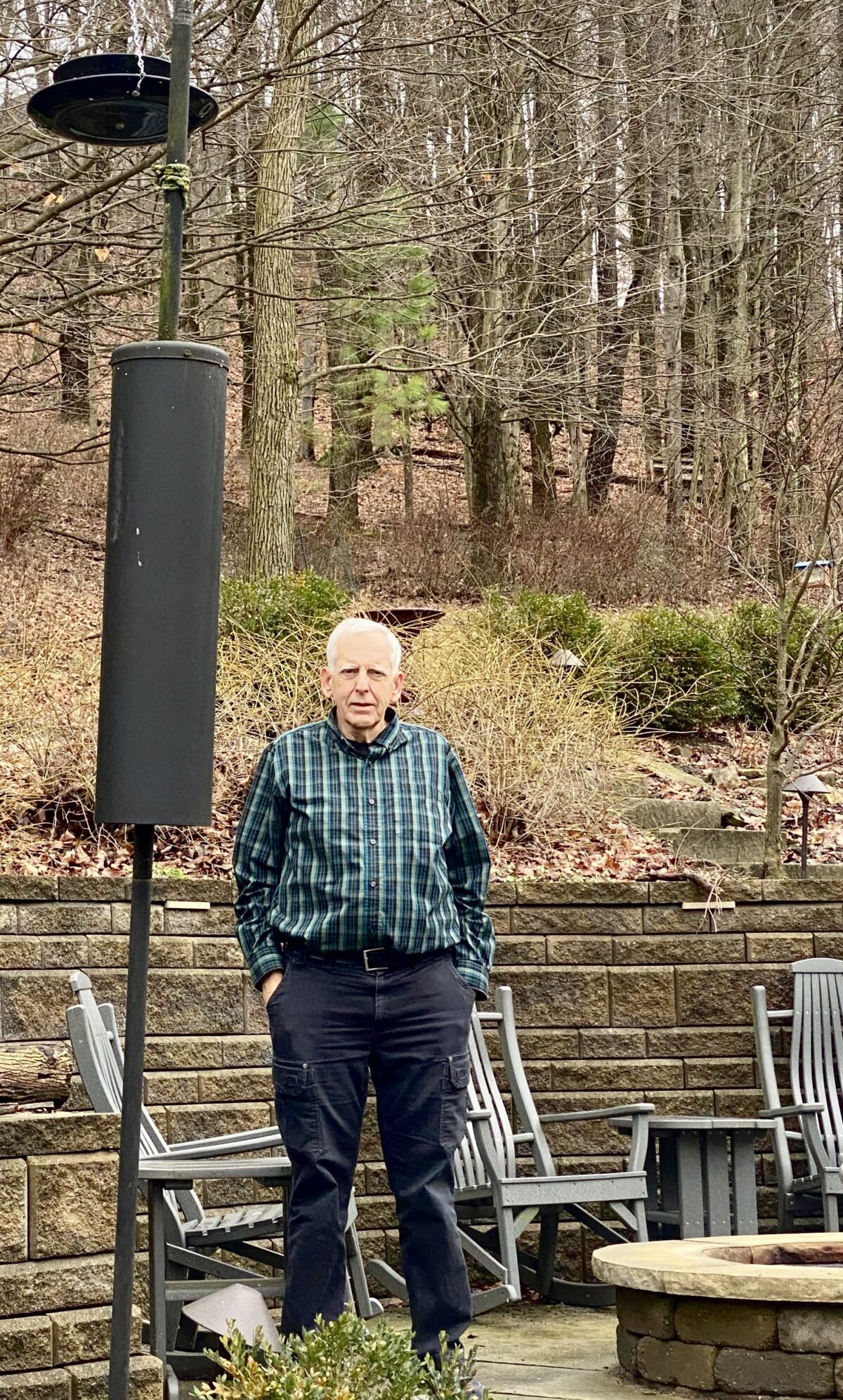In a beautifully landscaped backyard, bird feeders sway gently as plump birds peck eagerly at hand-blended seeds. Although the woman with a smile larger than life no longer sits while sipping her coffee and watching them frolic, a particularly ethereal bluebird pays a visit, reminding her husband Mel that she’s still close by.
Diane Preston’s story, intertwined with her husband Mel’s, is one of resilience, compassion, and unwavering dedication. From her artistic ability and adventurous spirit to her lifelong commitment to service, Diane’s legacy has had a profound influence on all who crossed paths with her.
After Diane was handed a 12-month prognosis by doctors in 2018, Mel Preston founded the nonprofit Diane’s Seeds for Hope in memory of his wife, which serves as a tribute for both her commitment in life to making a difference and his dedication to fighting pancreatic cancer. Through their work in Newark, Ohio, the grandfather of five works tirelessly alongside his three children to raise awareness and fund research, drawing inspiration from Diane’s profound love for birds.
A little ditty about Mel and Diane
Mel, a 79-year-old native of Alexandria, Indiana, grew up with three sisters on a property with sprawling grass and trees to climb. His Methodist minister father always told him that “Prestons were either preachers or teachers.”
Even so, Mel’s career aspirations veered from the traditional paths laid before him. While initially studying electrical engineering at Purdue University, Mel found his calling in manufacturing, eventually becoming a successful plant manager.
In the ups and downs of his career, Mel found his anchor in Diane, his beloved wife.
The couple met at just 19 and 21 years old while Mel was working a summer job at a department store, and he knew instantly she was the one for him.
“It was interesting because we both were a little bit introverted,” Mel recalled fondly, remembering their lively first date at her backyard skating rink. “But it was strange, and I couldn’t explain it for a long time, but I felt really, really comfortable with her. And she was the same with me that very first date. Matter of fact, I stayed around their house that night till very, very early morning. Just talking.”

What began as a summer romance blossomed into a 56-year marriage during which they welcomed three children: Mark, Beth, and Alicia. Together, they navigated life’s many joys and challenges with Diane becoming Mel’s unwavering companion on many of his work travel excursions around the world.
“We enjoyed each other the whole 56 years we were married,” Mel said. “I think we were as much in love the day she died as we were the day of our first date.”
Born and raised in New Paris, Ohio, Diane lived a life defined by her artistic talent and commitment to empowering others, particularly children. Her artistic creations ranged from sculptures in alabaster to intricate ceramic pieces, each reflecting her deep love for mother-child imagery.
She studied Fred Rogers (Mister Rogers), drawing inspiration from his teachings to encourage self-expression through art among high-risk high school girls.
“She wanted to make sure that they grew into happy young women,” Mel said.
Diane’s impact extended beyond the classroom: she volunteered her time reading stories to kindergarteners, often accompanied by their beloved cavalier spaniel dog.
“She would make a hat for the dog that matched the book story she was reading!” Mel recounted. “Somehow or another, she was sort of a child magnet. Kids would just be drawn to her.”
Diane was a member of the Granville chapter of the service club Kiwanis, which awards scholarships to young people. She also served as a Court Appointed Special Advocate, supporting abused and neglected children.
Their happiness was shattered, however, when a hiking trip in Sedona, Arizona was interrupted by Diane’s suddenly debilitating back pain. Diane was diagnosed with Stage 4 pancreatic cancer and given just six months — or 12 months, with the addition of chemotherapy — to live.
Despite the daunting odds — Stage 4 pancreatic cancer has a five-year survival rate of 1% , according to the Johns Hopkins Hospital — Diane faced the disease head-on. She lived another 18 months before succumbing to the disease in March 2020.
“She wanted to live,” said Alicia Joens, Diane and Mel’s daughter. “She had so many things she wanted to do; so many special moments she wanted to witness.”
“Days before my mom passed, she told my brother, ‘Think of me when you see a bird,’” Joens said
Founding Diane’s Seeds for Hope
Together, with the help of his daughter’s experience in marketing and journalism, they developed the Diane’s Seeds for Hope mission and outreach materials. Mel’s primary goal is to raise awareness about pancreatic cancer risk factors, stress the importance of early detection, and offer support to those who are impacted by the disease and their families. Offering presentations to various groups and organizations, he hopes to spread important information and resources while also building a sense of community and solidarity among those affected by pancreatic cancer.
The organization’s journey began with an initiative involving bird feeders and seed. Inspired by Diane’s love for bird nature and wildlife, Mel devised a plan to sell ceramic bird seed cylinders and feeders to raise funds toward the mission. With input from her daughters, the designs evolved, and the organization began selling a variety of painted bird feeders at art shows and craft fairs, alongside brochures about pancreatic cancer risk factors and symptoms.

Mel’s primary objective shifted from solely fundraising to prioritizing awareness and early detection efforts, inspired by meaningful encounters with others impacted by the disease.
“I learned that lots of people wanted to talk about their experiences,” Mel explained. “A loved one, a neighbor, a coworker or a friend who was impacted by pancreatic cancer.”
In addition to designing and selling bird feeders, Mel takes on the task of crafting the bird seed himself. In the garage of his home, he mixes ingredients,carefully preparing each batch using his trusted recipe.
“I use a fruit and nut mix from Tractor Supply, along with a sunflower mix,” Mel said. “And then I have to order the mealworms in bulk online because it’s far more expensive to buy them in the store.”
After combining the ingredients and molding them into shape, he follows a specialized dehydration process to preserve the seeds, ensuring they maintain their longevity and nutritional value for extended periods.
Diane’s Legacy
Diane’s strength and kindness continue to influence the people who knew her, even after she’s gone.
Joens, the managing director for Diane’s Seeds for Hope, oversees many of the marketing aspects of the nonprofit.
“The void [Diane] left is always there,” she said. “Nothing can fill it. We don’t want others to feel this void. We want to help educate people of the signs so that maybe they will seek help early and have a better outcome.” Beth Canfield, Diane and Mel’s other daughter, also helps out during craft shows and events.
“I’m always on the lookout for unique plates or bowls that we use for making our birdfeeders,” Canfield said. “My Dad was offered a free stand at the Granville Fourth of July weekend to set up sales for our non-profit. So many residents came out to support us, and many had warm and kind wishes for our work.”
The sisters are continuing the fight against pancreatic cancer in other ways, too. The two recently participated in a clinical trial for a blood test that detects pancreatic cancer and other cancers, called the “Pathfinder Study,” at the Cleveland Clinic.
In addition, each year, Mel and his family take part in PanCAN PurpleStride, the ultimate walk to end pancreatic cancer.
“I told her we would continue her fight and that it will not win in the long run,” Canfield said.
To date, the nonprofit has raised approximately $40,000 for crucial research.
Cheri Misel, a retired public accountant and neighbor who used to walk with Diane, reflected on her incredible spirit. Misel, born and raised in Cambridge, Ohio, said Diane started each and every morning with her favorite Louis Armstrong song.
“Every morning, upon rising, she would play ‘What A Wonderful World,’” Misel said. “That’s how she started her day. That was just her mantra.”

